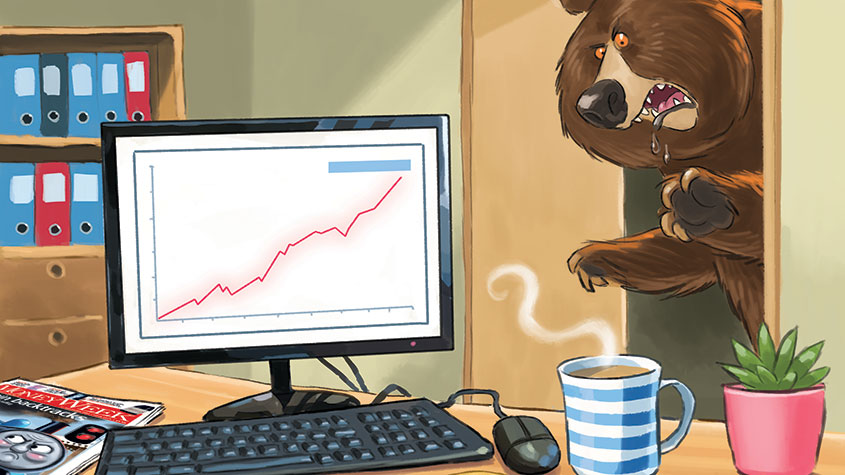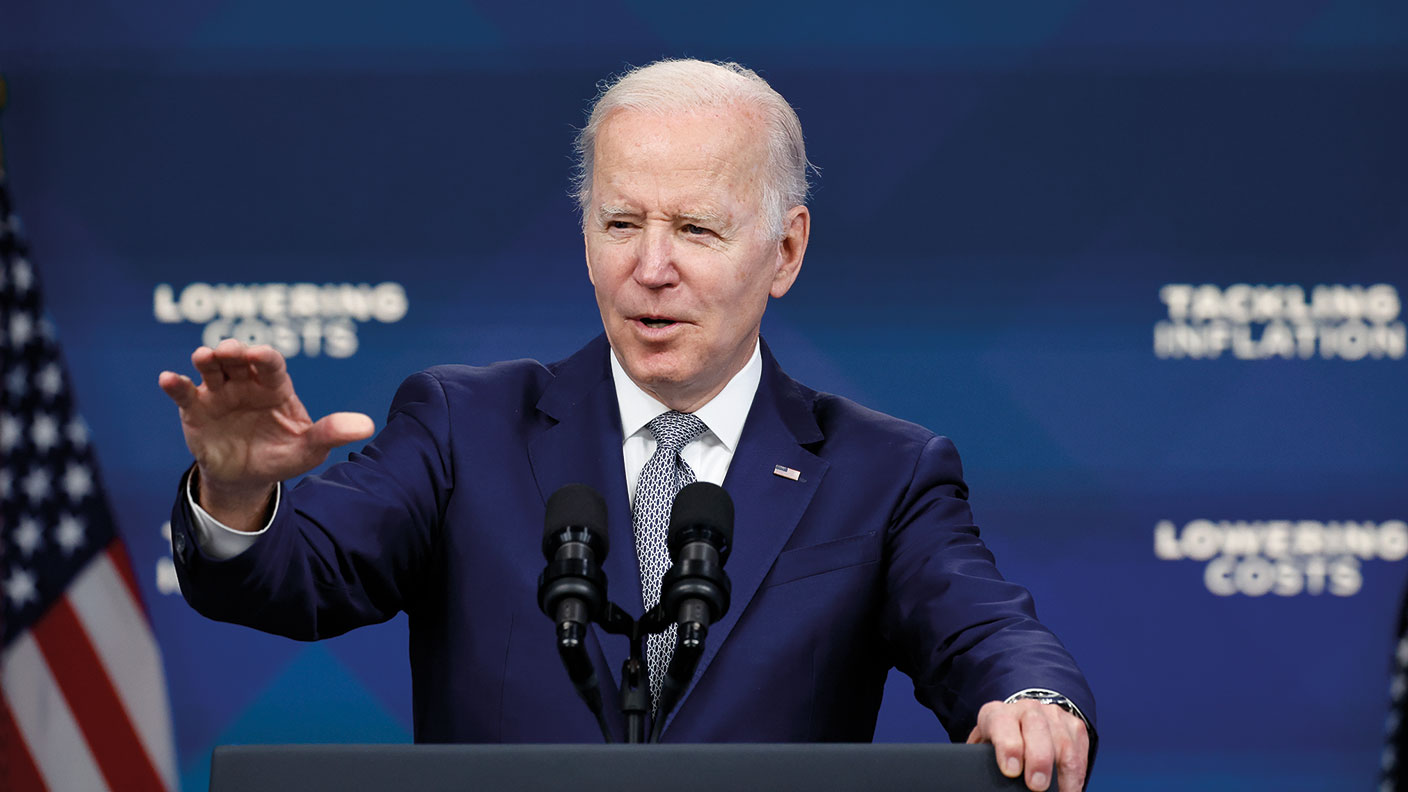Market fear and loathing
From oil to Chinese stocks, panic is spreading through the markets, says Merryn Somerset Webb.

Get the latest financial news, insights and expert analysis from our award-winning MoneyWeek team, to help you understand what really matters when it comes to your finances.
You are now subscribed
Your newsletter sign-up was successful
Want to add more newsletters?

Twice daily
MoneyWeek
Get the latest financial news, insights and expert analysis from our award-winning MoneyWeek team, to help you understand what really matters when it comes to your finances.

Four times a week
Look After My Bills
Sign up to our free money-saving newsletter, filled with the latest news and expert advice to help you find the best tips and deals for managing your bills. Start saving today!
Flick through this week's issue and you will see nothing but market fear and loathing. We look at commodities, for example. Oil is down to around $50 a barrel. Gold is at a five-year low. Copper is as cheap as it was in 2008. Mining stocks have been slammed.
We also tell you about the junk-bond market (bonds issued by low-quality firms with higher-than-usual interest payments). This isn't one many MoneyWeek readers will be actively involved in and isn't particularly well understood (see John Stepek's piece on the market). But if you were involved, you'd know that some prices are off by 50%.
Then there is China: the market is down around 25% since its peak and fell 8% in one day alone this week, despite government efforts to prop it up. Things aren't too good in Western markets either: the FTSE 100 is down 8% since April. There is the odd silver lining: mining sector yields haven't been this high since the 1990s and we still think that China is more likely to be in the midst of a structural bull market by 2016 than stuck in a bear.
MoneyWeek
Subscribe to MoneyWeek today and get your first six magazine issues absolutely FREE

Sign up to Money Morning
Don't miss the latest investment and personal finances news, market analysis, plus money-saving tips with our free twice-daily newsletter
Don't miss the latest investment and personal finances news, market analysis, plus money-saving tips with our free twice-daily newsletter
Even so, there isn't an optimist out there who doesn't have to admit that the constant abrupt movement (more down than up) in today's markets is a bit scary. So what's up? It's pretty simple. Nobody knows what is really going on.
The signals from the real economy are confounding. There are signs of rising wages and good growth in parts of the US and UK. But China is slowing fast and as a result, so are commodity-producing countries everywhere from Latin America to Australia. Global trade numbers are troubling too down in four of the first five months of the year and Europe is as fragile as ever.
So while the US and UK know it's time to have a go at normalising interest rates, the rest of the world economy is saying they may have to reverse any rises pretty quickly. The fear is also about the dawning realisation that we might be stuck with the lack of global growth.
We've left our central banks to cover the cracks in our world. And they just can't do it. Quantitative easing and zero interest rates haven't given us prosperity. They might, as James Grant notes in the FT, have pushed up stock and bond prices. But without GDP and profit growth, those prices can't stay up indefinitely. Central banks can't do magic. What you are seeing in today's markets is the world beginning to understand that.
That said, there's always somewhere to invest. In this week's issue of MoneyWeek, David Stevenson looks at a market that actually looks undervalued (rare and special in today's world) Vietnam. And for some firms in the UK with a better-than-average chance of strong growth, David Thornton looks at firms with high levels of employee ownership and explains why employee power, unlike central bank power, is good for capitalism and for companies.
Get the latest financial news, insights and expert analysis from our award-winning MoneyWeek team, to help you understand what really matters when it comes to your finances.

-
 Early signs of the AI apocalypse?
Early signs of the AI apocalypse?Uncertainty is rife as investors question what the impact of AI will be.
-
 Reach for the stars to boost Britain's space industry
Reach for the stars to boost Britain's space industryopinion We can’t afford to neglect Britain's space industry. Unfortunately, the government is taking completely the wrong approach, says Matthew Lynn
-
 What to do as the age of cheap money and overpriced equities ends
What to do as the age of cheap money and overpriced equities endsEditor's letter The age of cheap money, overpriced equities and negative interest rates is over. The great bond bull market is over. All this means you will be losing money, says Merryn Somerset Webb. What can you do to protect yourself?
-
 Investors are bullish – but be very careful
Investors are bullish – but be very carefulEditor's letter Many investors are buying the dip, convinced the latest upswing is the start of a new bull market. The odds are that it’s not, says Andrew Van Sickle. The bear has unfinished business.
-
The MoneyWeek approach to investing
Editor's letter At MoneyWeek, our aim is simple: to give you intelligent and enjoyable commentary on the most important financial stories, and tell you how to profit from them. So how do we do that?
-
 Celebrity bitcoin ads echo the subprime mortgage crisis
Celebrity bitcoin ads echo the subprime mortgage crisisEditor's letter A wave of ads featuring celebrities punting crypto to the masses are reminiscent of how low income Americans were encouraged to take on loans they couldn’t afford, says Merryn Somerset Webb.
-
 Will the UK's property slowdown turn into a house-price crash?
Will the UK's property slowdown turn into a house-price crash?Editor's letter As the cost-of-living crisis intensifies and interest rate rise, it is hard to see reasons for UK house prices to keep rising, says Merryn Somerset Webb.
-
 The unintended consequences of ESG investing
The unintended consequences of ESG investingEditor's letter Many people are refusing to invest in energy companies, citing "ESG" concerns. But we still need fossil fuels, says Merryn Somerset Webb, and will for years to come. Boycotting the sector is a bad idea.
-
 What sardines can teach investors about today's markets
What sardines can teach investors about today's marketsEditor's letter A California tale of “eating sardines” and “trading sardines” can help us divide investments into speculative and real, says Merryn Somerset Webb. Something that's very useful when looking at today’s markets.
-
 The market finally seems to be getting it
The market finally seems to be getting itEditor's letter Reality checks are coming fast to the markets, says Merryn Somerset Webb – with even 2022’s safe havens beginning to reflect recession worries.